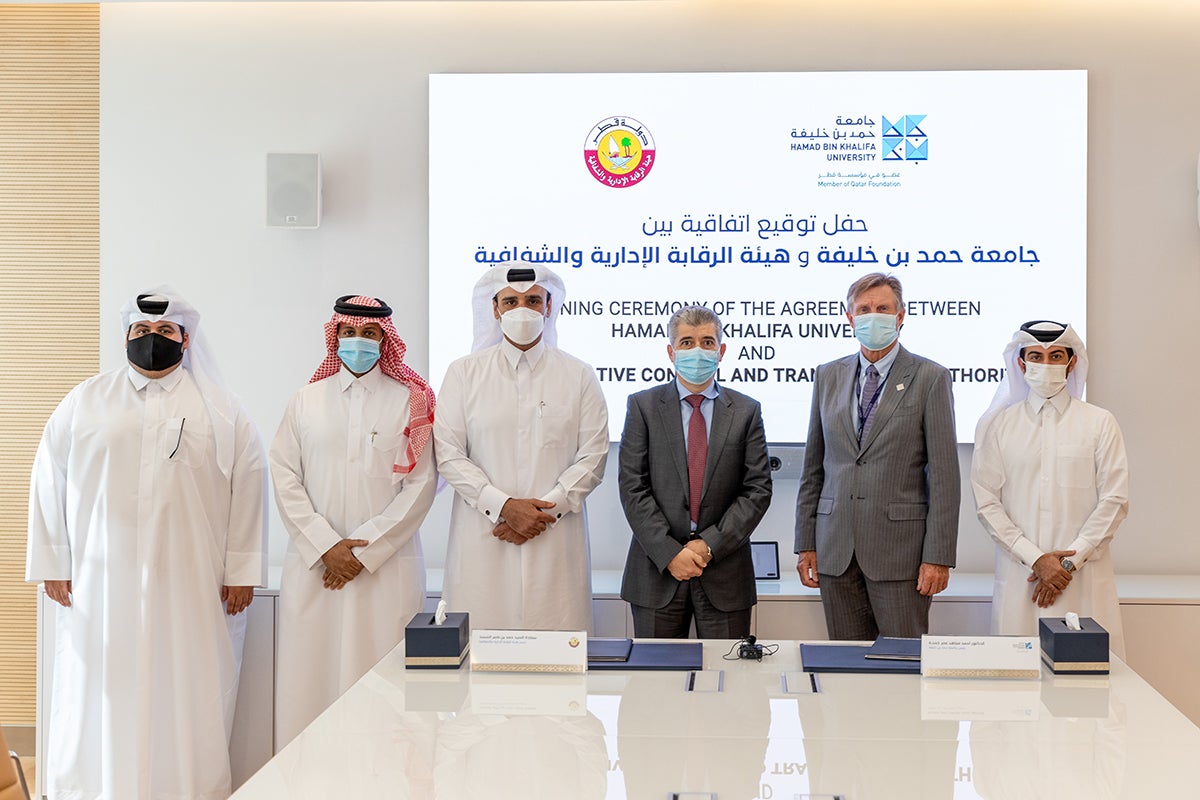Cooperation agreement enables knowledge exchange on international best practices in administrative transparency

Hamad Bin Khalifa University (HBKU), a member of Qatar Foundation, has signed a framework agreement with the Administrative Control and Transparency Authority (ACTA) to cooperate on research, training, and development in the fields of integrity, transparency, accountability, and anti-corruption.
His Excellency Mr. Hamad bin Nasser Al-Misnad, Chairman of ACTA, and Dr. Ahmad M. Hasnah, President of HBKU, signed the three-year agreement during a ceremony at Education City. The agreement provides a platform for HBKU and ACTA to share knowledge on international standards, best practices, training programs, and the very latest approaches in these fields.
Two high-priority research projects will highlight international best practices that can enhance ACTA’s current projects, as well as its policies and procedures related to conflict of interest, rules of conduct, and integrity in national agencies. Comparative studies will focus on measures taken by different countries - particularly those ranking high on corruption indices - to consolidate good governance, combat corruption, and implement effective administrative, financial, and legal controls.
Speaking after the signing, Dr. Leslie A. Pal, Founding Dean of the College of Public Policy at HBKU, said: “We are looking forward to building close ties with the Authority - a pivotal entity in Qatar’s efforts to enhance transparency and good governance. We are very pleased that HBKU has this opportunity to support Qatar in strengthening its institutional capacity and achieving national good governance goals.”
ACTA’s mandate is to work in coordination with Qatar’s authorities to develop and implement the national strategy to enhance integrity and transparency in all sectors. These are efforts that contribute to the prevention of corruption, achieving sustainable development, and fulfilment of international obligations.
For his part, Mr. Jassim Al Derhem, Head of Technical Office at ACTA, said: “Our cooperation with HBKU supports the Authority's goals and objectives through the specialized knowledge and expertise that will be shared and implemented. Joint projects that allow us to remain informed of new approaches will augment our efforts to establish controls at the national level and strengthen Qatar’s leadership internationally. It is also our aim to encourage the country’s top universities, like HBKU and others, to support the implementation of integrity and transparency, and help our national institutions to achieve sustainable development goals.”





